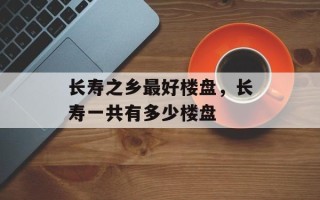各位老铁们好,相信很多人对长寿之乡的老外都不是特别的了解,因此呢,今天就来为大家分享下关于长寿之乡的老外以及中国的长寿之乡的问题知识,还望可以帮助大家,解决大家的一些困惑,下面一起来看看吧!
本文目录
一、如皋有哪些好玩的地方
1、金岛生态园,位于世界长寿之乡的如皋 *** 青沙旅游度假区。
2、长江 *** 用植物园,位于江苏省如皋 *** 青沙岛,总用地面积约5000亩。
3、如皋水绘园景区,国家AAA *** 旅游景区,是我国徽派园林的孤本 *** 。
4、中国长寿城,位于如皋主城区西郊,总面积约1500亩。
5、定慧禅寺,初建于隋朝开皇十一年(公元591年),是一座建筑风格独特的山门北向的 *** 古刹。
6、中国工农红军第十四军纪念公园,位于如皋主城区东郊,是一个集爱国主义教育和旅游观光于一体的红色旅游景区。
7、内外城河,在国内城市建设史上独树一帜,外圆内方,形似古钱币,实属罕见。
8、法宝禅寺,建筑风格独特,在一般寺庙中较为少见。
9、龙游湖商务风景区,位于如皋市主城区东南如皋科技城内。
10、如皋水绘园,国家4 *** 旅游景区。
二、怎样给老外介绍中国新年8大习俗
To clean houses on the New Year Even is a very old custom dating back to thousands of years ago. The dust is traditionally associated with“old” so cleaning their houses and sweeping the dust mean to bid farewell to the“old” and usher in the“new”. Days before the New Year, Chinese families clean their houses, sweeping the floor, washing daily things, cleaning the spider webs and dredging the ditches. People do all these things happily in the hope of a good coming year.
春节打扫房屋这个非常古老的习俗甚至可以追溯到几 *** 前。灰尘在传统上与“旧”联系在一起,所以打扫房屋和扫除灰尘意味着辞“旧”迎“新”。春节的前几天,中国的各家各户都打扫房屋,扫地,清洗日用品,清除蛛网和疏浚沟渠。人们兴高采烈做所有这些事情,希望来年好运。
One of the house decorations is to post couplets on doors. On the Spring Festival couplets, good wishes are expressed. New Year couplets are usually posted in pairs as *** n numbers are associated with good luck and auspiciousness in Chinese cult *** e.
房屋装饰之一就是在门上贴对联。在春联上,抒发良好的祝愿。春联通常是成对张贴,因为双数在中国文化中是好运气和吉祥的象征。
People in north China are used to posting *** -cut on their windows. When sticking the window decoration *** -cuts, people paste on the door large red Chinese character“fu”A red'fu'means good luck and fortune, so it is custo *** ry to post'fu'on doors or walls on auspicious occasions such as wedding, festivals.
在中国北方,人们习惯于在窗户上贴剪纸。人们既在窗户上贴剪纸,又在大门上贴上大大的红色汉字“福”字,一个红色“福”字意味着好运和财富,因此习惯上在婚礼,节日之类的吉祥场合中,人们都会在门或墙上贴“福”字。
3. Waiting for the First Bell Ringing of Chinese New Year等待春节的之一声钟鸣
The first bell ringing is the symbol of Chinese New Year. Chinese people like to go to a large squares where there are huge bells are set up on New Year’s Eve. As the New Year approaches they count down and celebrate together. The people beli *** that the ringing of huge bell can drive all the bad luck away and bring the fortune to them. In recent years, some people h *** e begun going to mountain temples to wait for the first ringing. Hanshan Temple in Suzhou, is very famous temple for its first ringing of the bell to herald Chinese New Year. Many forei *** ers now go to Hanshan Temple to celebrate Chinese New Year.
之一次钟声是春节的象征。中国人喜欢到一个大广场,那里有为除夕设置的大钟。随着春节的临近,他们开始倒计数并一起庆祝。人们相信了大钟的撞响可以驱除霉运,带来好运。近年来,有些人开始去山上寺庙等待之一次钟声。苏州的寒山寺就非常著名,它的钟声宣布春节的到来。现在有许多外国 *** 去寒山寺庆祝春节。
4. Staying up late('Shousui')熬夜(“守岁”)
Shousui means to stay up late or all night on New Year's Eve. After the great dinner, families sit together and chat happily to wait for the New Year’s arrival。
守岁意味着除夕夜不睡觉。年夜饭后,家人聚坐一起,愉快聊天,等待春节的到来。
Spring Festival is a time for family reunion. The New Year's Feast is'a must' banquet with all the family members getting together. The food eaten on the New Year Even banquet varies according to regions. In south China, It is custo *** ry to eat'niangao'(New Year cake *** de of glutinous rice flo *** ) because as a homophone, niangao means'higher and higher *** ry year'. In the north, a traditional dish for the feast is'Jiaozi' or dumplings shaped like a crescent moon.
春节是与家人团聚的时间。年夜饭是所有家庭成员聚在一起“必须”的宴会。除夕宴会上吃的食物根据不同的地区各不相同。在中国南方,习惯吃“年糕”(糯米粉制成的新年糕点),因为作为一个同音字,年糕意味着“步步高升”。在北方,年夜饭的传统饭是“饺子”或像月牙儿形的汤圆。
6. Setting Firecrackers燃放鞭炮
Lighting Firecrackers used to be one of the most important customs in the Spring Festival celebration. How *** r, concerning the danger and the negative noises that lighting firecrackers *** y bring, the government has banned this practice in *** ny *** jor cities. But people in *** all towns and r *** al areas still hold to this traditional celebration. Right as the clock strike 12 o'clock midnight of New Year's Eve, cities and towns are lit up with the glitter from fireworks, and the sound can be deafening. Families stay up for this joyful moment and kids with firecrackers in one hand and a lighter in another cheerfully light their happiness in this especial occasion, *** n though they plug their ears.
放鞭炮曾是春节庆祝活动中最重要的习俗之一。然而,担心燃放鞭炮可能会带来危险和烦人的噪音, *** 已在许多大城市下令禁止燃放鞭炮。但在小城镇和农村地区的人们仍然坚持这种传统的庆祝活动。除夕夜一旦时钟撞响午夜12点钟,城市和乡镇都被 *** 的闪闪光芒映亮,鞭炮声震耳欲聋。一家人熬夜就为这个欢乐的时刻,孩子们一手拿鞭炮,一手拿火机兴高采烈地点放着他们在这个特殊节日的快乐,尽管他们吓得捂着耳朵。
7. New Year Greetings(Bai Nian)春节的问候(拜年)
On the first day of the New Year or shortly thereafter, *** rybody wears new clothes and greets relatives and friends with bows and Gongxi(congratulations), wishing each other good luck, happiness d *** ing the new year. In Chinese villages, some villagers *** y h *** e *** dreds of relatives so they h *** e to spend more than two weeks visiting their relatives.
在春节之一天或此后不久,大家都穿着新衣服,带着弓向亲戚和朋友打招呼并恭喜(祝贺),彼此祝愿在新的一年里好运,幸福。在中国农村,有些村民可能有数以百计的亲戚,所以他们不得不拿出两个多星期来走亲访友。
On the first day of the new year, it’s custo *** ry for the younger generations to visit the elders, wishing them healthy and longevity.
春节之一天,按习惯,小一辈人要拜见老一辈,祝愿他们健康长寿。
Because visiting relatives and friends takes a lot of time, now, some busy people will send New Year cards to express their good wishes rather than pay a visit personally.

因为探亲访友花费大量时间,所以,现在有些忙碌的人就送春节贺卡来表达他们的良好祝愿,而不是亲自去拜访。
It is the money given to kids from their parents and grandparents as New Year gift. The money is beli *** d to bring good luck, ward off monsters; hence the name'lucky money'.
Parents and grandparents first put money in *** all, especially- *** de red envelopes and give the red envelopes to their kids after the New Year's Feast or when they come to visit them on the New Year. They choose to put the money in red envelopes because Chinese people think red is a lucky color. They want to give their children both lucky gift money and lucky color.
这是孩子们的父母和祖父母给他们作为春节礼物的钱。压岁钱据说能带来好运,能驱魔;因此,就有了“压岁钱”的称呼。父母和祖父母先把钱放入特制的小红包里,年夜饭后或当孩子们来拜年时,将红包发给他们。他们之所以要把钱放到红包里,是因为中国人认为红色是个幸运色。他们想给自己孩子既有压岁钱还有幸运色。
三、为什么中国的长寿人口基本都在农村呢
就像古代的皇帝们追求长生不老一样,很多人都希望自己能活的年头久一点,但很多人都因为各种各样的意外过早地告别这个世界。但在我国的广西巴马长寿村,长寿成为了人们眼中的常态。以下就是几点农村出长寿者的原因:
气候适宜是人们更好地生活的外在条件,如果一个地方要么非常非常冷,要么非常非常热,别说是人,就连农作物、动物等都没有办法更好地生长,动物消瘦植物产量不足,人们生活的不是很满意所以更不要说能很是长寿。所以气候原因很是重要。
一般村里忙的时候就是春种秋收之间,剩下的日子基本上互相串门唠唠东家长李家短,各家四处走动,每天的生活就是炕头上嗑瓜子炕梢打 *** 。你看这么快乐的日子能吃饱能穿暖,并没有什么需要担心的问题,所以这能不长寿吗?
有很多村子都会喝一些自己打的井里面的水,或者是一些山泉水,这些水有些会含有 *** 所需的矿物元素,长期引用这些水或者用来烹饪食物,身体每天都被滋润,肯定好处多多,健康常识。
而且农村的生活压力较小,不像在城市里生活的压力那么大。所以如果想更加长寿一些就不要有过多的压力,在饮食方面多注意一下合理的荤素搭配哟。不以物喜不以己悲,笑口常开才能过的更加舒心,才能看到这个世界更加美丽的一面。
OK,关于长寿之乡的老外和中国的长寿之乡的内容到此结束了,希望对大家有所帮助。







